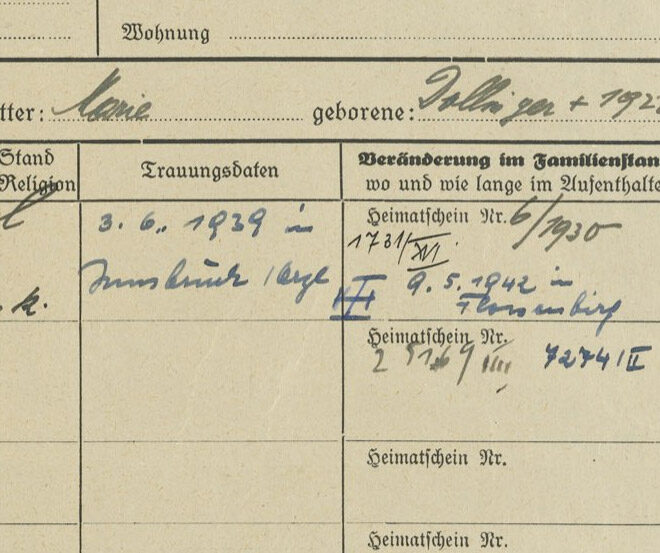On January 27, 2024, this
Zeitpunkt was installed near the address Alois-Schrott-Strasse 36. The initiative for this came from erinnern:at.
Born 16.4.1902 in Innsbruck-Hötting
Died 9.5.1942 in the Flossenbürg concentration camp
Labourer Josef Hundegger was opposed to National Socialism from the very beginning. This was no secret in Arzl. Hundegger was a passionate member of the Arzl “Schützenkompanie” (ceremonial marksmen). Gauleiter Franz Hofer promoted the marksmen’s companies but put an end to their customary role in the annual Corpus Christi processions.
This was unacceptable to Hundegger, who challenged Arzl’s party members on the subject. It is thought to have been the local “Ortsgruppenleiter” (group leader) who reported him.
Hundegger was arrested and taken to the Innsbruck police detention centre. From 23 June to 20 July 1939 he was “at the disposal of the Gestapo”.
On 12 November the Gestapo arrested him again; the Nazis in Arzl had not given up. This time the charge was “dissemination of atrocity stories”. The Gestapo deported Hundegger to Sachsenhausen concentration camp, where he arrived on 15 November. He was classified as a political prisoner. On 6 April 1940, he was transferred to Flossenbürg concentration camp on the Czech border. Protective custody prisoner Josef Hundegger no. 2,397 died there two years later on 9 May 1942. The official cause of death was “cardiac insufficiency associated with acute gastric and intestinal catarrh”.
Source:
Hormayr, Gisela: “Die Zukunft wird unser Sterben einmal anders beleuchten”. Opfer des katholisch-konservativen Widerstands in Tirol 1938–1945, Innsbruck-Wien-Bozen 2015, p. 206.
International Tracing Service Arolsen, file of Hundegger, Josef Tiroler Landesarchiv, Leopoldine Hundegger’s victim welfare file
